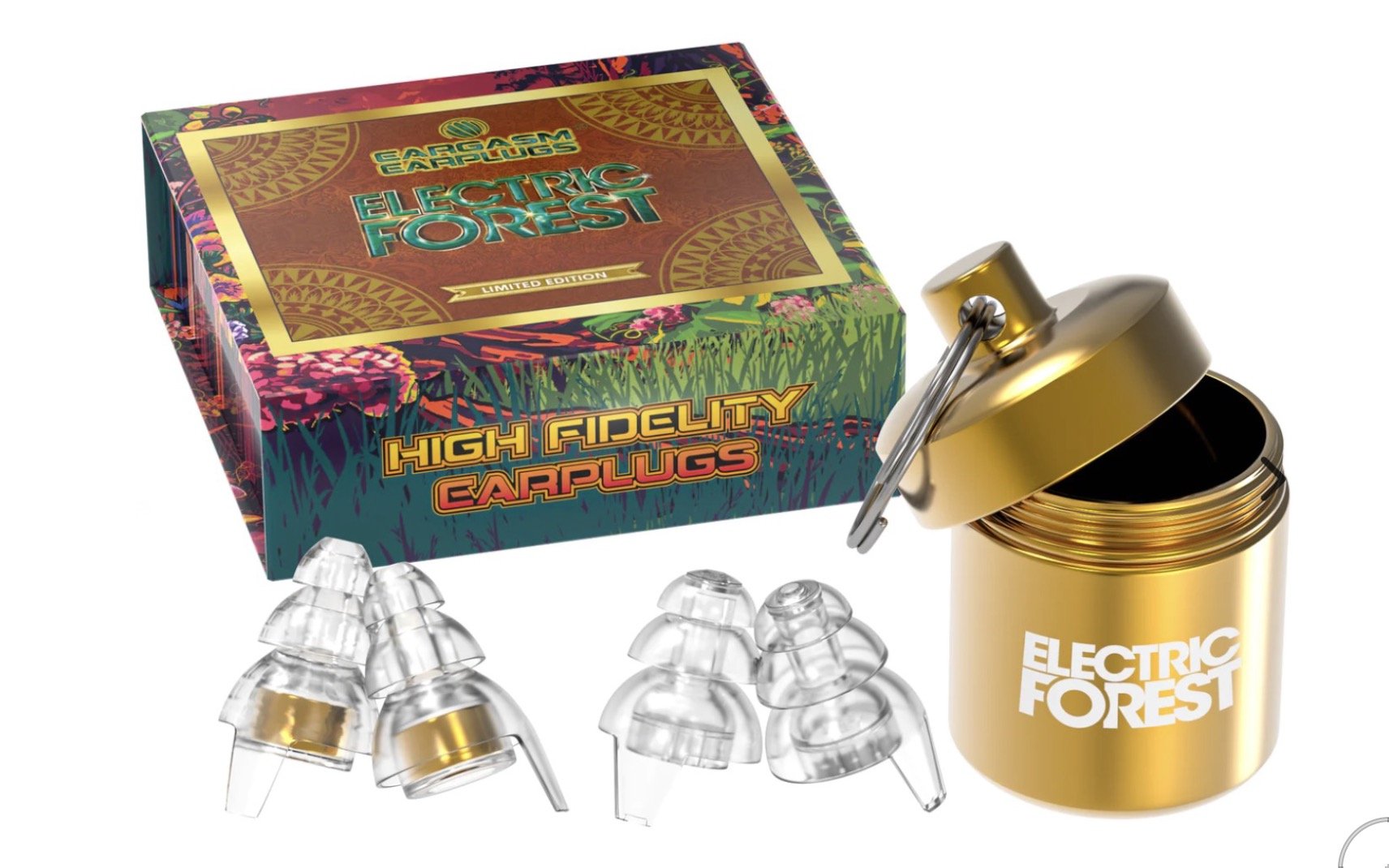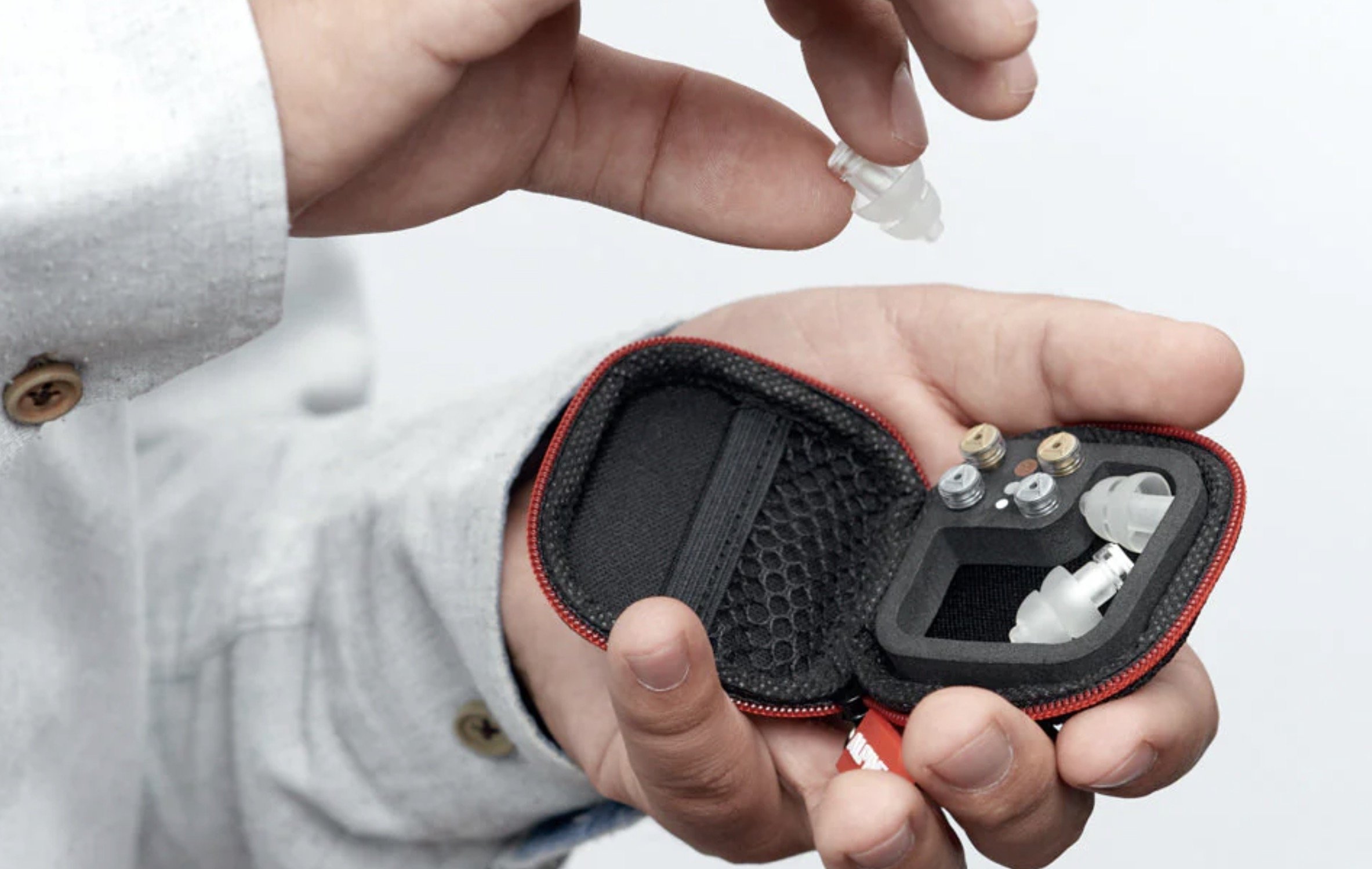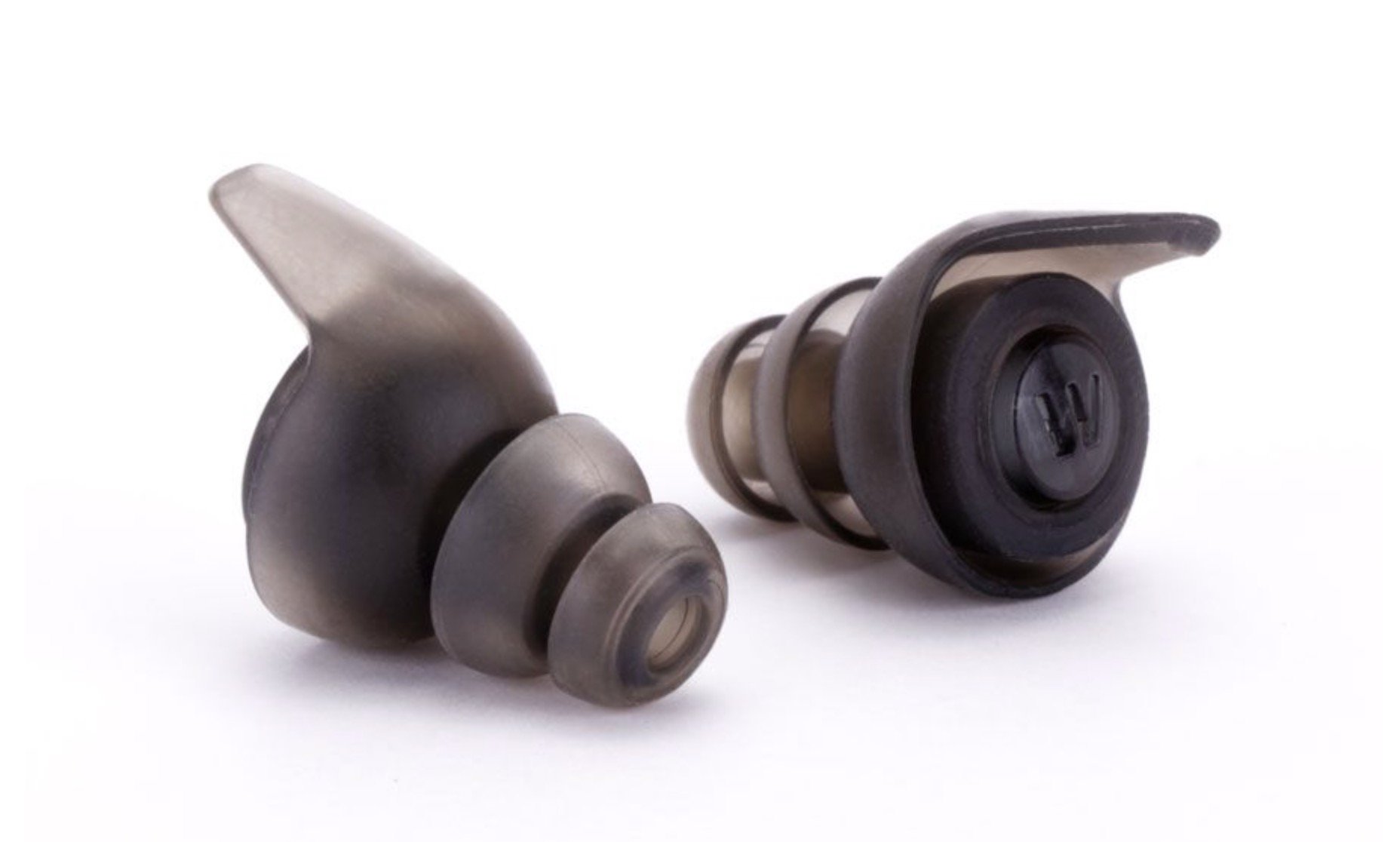Best Hearing Protection for Concerts and Live Music
Attending a concert is an exhilarating experience. The live music, the crowd's energy, and the memorable moments all combine to make it unforgettable. However, one often overlooked aspect of attending concerts is the potential for hearing damage due to the loud music. Prolonged exposure to loud sounds can lead to permanent hearing loss or tinnitus. Fortunately, there are effective hearing protection options designed specifically for concertgoers. Let's explore the top 10.
The Best Hearing Protection for Concerts
1. Etymotic ER20XS
These earplugs are hailed for reducing noise without distorting sound quality. They allow users to enjoy music while protecting their ears from harmful decibels. They come with a few useful additions like multiple eartips allowing you to find a comfortable and secure fit which is essential to protecting your hearing at a concert. You also get a cable to connect them so you don’t have to fumble around looking for each individual ear plug. This also allows you to hang your hearing protection around your ears so they don’t get lost.
Website: Etymotic Research
2. Eargasm High Fidelity Earplugs
With a clear outer shell, these earplugs are discreet and come with a patented attenuation filter to maintain sound clarity. They also offer two different size options to ensure a snug fit. We also like that you get two pairs in the package and they are fully interchangeable so if you lose one you can immediately replace it. The pricing is excellent, they come with an included metal carry case, and you can choose from a wide range of colors.
Website: Eargasm Earplugs
3. Alpine MusicSafe Pro Earplugs
Designed specifically for musicians, these earplugs come with three sets of interchangeable acoustic filters, allowing users to choose their desired level of sound reduction. This system offers a huge step up in fidelity allowing music to be heard far clearer than with cheaper models. I use a set of these for motorcycle hearing protection as well and can attest to how comfortable they are over long drives so they should be great for concerts as well.
Website: Alpine Hearing Protection
4. EarPeace Concert Ear Plugs
EarPeace offers a premium feel with its aluminum carrying case and multiple skin-tone options. The plugs provide a clear sound and are comfortable for extended wear. They are not as advanced as the Etymotic or Alpine options on this list, but they get the job done, allowing you to listen to live music without compromising your hearing. Again, you get two sets in the pack, making them fantastic value for money.
Website: EarPeace
5. Vibes High Fidelity Concert Earplugs
Featured on the TV show "Shark Tank," Vibes are designed to enhance sound clarity while lowering volume. They’re virtually invisible, making them perfect for those who want discreet protection. The other thing I like is they take standard ear tips and are the most comfortable model we tested. The protrusion of the plug body makes it easy to get a good fit and the small carry case is easily pocketable when the plugs are not in use.
Website: Discover Vibes
6. DownBeats Reusable Hearing Protection
DownBeats offers a sleek design that focuses on sound clarity. With a low profile and a comfortable fit, they’re ideal for long concerts.
Website: DownBeats
7. Mack’s Acoustic Foam Earplugs
For those on a budget, Mack’s provides an effective solution. These foam earplugs are comfortable and have a noise reduction rating (NRR) of 20 decibels. While that isn’t the highest level of hearing protection on this list it can still be the difference between enjoying the concert and causing permanent damage to your ears.
Website: Mack’s Earplugs
8. Westone TRU Universal WM16
With an NRR of 16 dB, these earplugs were designed for musicians and concertgoers. They maintain sound fidelity while offering solid hearing protection. Westone is a well-regarded maker of earphones and headphones, so they know what they are doing in designing hearing protection. My one complaint with these is the price, but shop around, and you can often find deals on them.
Website: Westone Audio
9. Walkers Slim Earmuffs
The Walkers Razor Slim is the best hearing protection for shooting and one of the most popular earmuffs for that purpose. However, what makes them so great on the range transfers well to hearing protection against loud live music.
Not everyone is comfortable using earplug-style protection and the Razor Slim is a lightweight and low-profile alternative. They block out 27db of noise and feature wide earcups and a large headband which will provide comfort for multiple hours.
I also like that they are available in multiple colors so you don’t have to go with the “tactical” look if you so wish.
10. Decibullz Custom Molded Earplugs
Decibullz offers a unique solution with earplugs that can be custom molded at home using warm water. This ensures a perfect fit for maximum noise isolation. Users may prefer this option if they have trouble getting a comfortable fit with universal earplugs. The ability to customize them to your ear shape ensures a perfect fit every time and this less chance of failure of the earplugs. The Decibullz also has great longevity and offers one of the most streamlined experiences.
Protecting Your Hearing While Enjoying Concerts and Live Music
Concerts and live music events are integral to many people’s social lives and cultural experiences. The exhilaration of watching a favorite band or artist perform live is incomparable. However, this experience can have a downside – the potential risk to your hearing.
Loud music, especially over extended periods, can lead to permanent hearing damage or conditions such as tinnitus, a constant ringing or buzzing in the ears. So, how can you continue to enjoy live music while ensuring your ears remain protected?
Understanding Safe Listening Levels
To comprehend the potential risk, it's essential to understand what constitutes a safe listening level. The loudness of sound is measured in decibels (dB). According to the World Health Organization (WHO), exposure to noise levels above 85 dB for eight hours can potentially cause hearing damage.
For context, a regular conversation usually occurs at about 60 dB, while live music concerts can range from 90 dB to 120 dB. The risk of hearing damage increases as the decibel level rises. At a concert level of 100 dB, for example, damage can occur after just 15 minutes of exposure.
Strategies to Protect Your Hearing
Earplugs Designed for Music Lovers: As mentioned previously, earplugs on the market are designed specifically for musicians and concert-goers. Brands such as Etymotic, Eargasm, and Alpine provide high-fidelity earplugs that reduce the volume without muffling the sound. These earplugs aim to lower the harmful frequencies while preserving the quality of the music.
Take Regular Breaks: If you're at a festival or an extended live music event, make it a point to take breaks. Step out of the main arena, find a quiet spot, and give your ears some relief. This practice can significantly reduce continuous exposure to loud sounds.
Position Matters: Your location relative to the sound source (like speakers) can significantly impact the volume you experience. Standing directly in front of speakers can expose you to much louder sounds than if you were situated further away or off to the side.
Limit Alcohol and Other Substances: Alcohol and other substances can reduce the perception of volume, making music sound less loud than it is [^3^]. This might lead you to stay closer to loud sources than you should. Being mindful of your intake can help you make better decisions about your auditory environment.
Awareness and Education: Often, people are unaware of the risks. Familiarizing yourself with the dangers of loud music and understanding the benefits of hearing protection can go a long way.
Regular Hearing Check-ups: If you're a frequent concert-goer, getting regular hearing check-ups is a good idea. This can help in the early detection of any hearing issues and allows for timely interventions.
Use Apps: There are smartphone apps available that can measure the decibel level in your environment. While they may not be as accurate as professional equipment, they can give you a rough idea if you're in a potentially harmful noise environment.
The Long-Term Perspective
The effects of loud music on hearing are cumulative. Every loud concert you attend without protection contributes to potential hearing damage. According to the National Institute on Deafness and Other Communication Disorders (NIDCD), about 15% of Americans aged 20 to 69 have hearing loss that may have been caused by exposure to noise at work or in leisure activities.
Hearing damage is irreversible. Once the hair cells in the inner ear are damaged, they cannot regenerate. But with the right protective measures, you can continue enjoying live music's euphoria without compromising your hearing health.
Remember, the goal is not to eliminate your exposure to loud music but to manage and moderate it. You can balance auditory safety and musical enjoyment with awareness, precaution, and the right tools.










